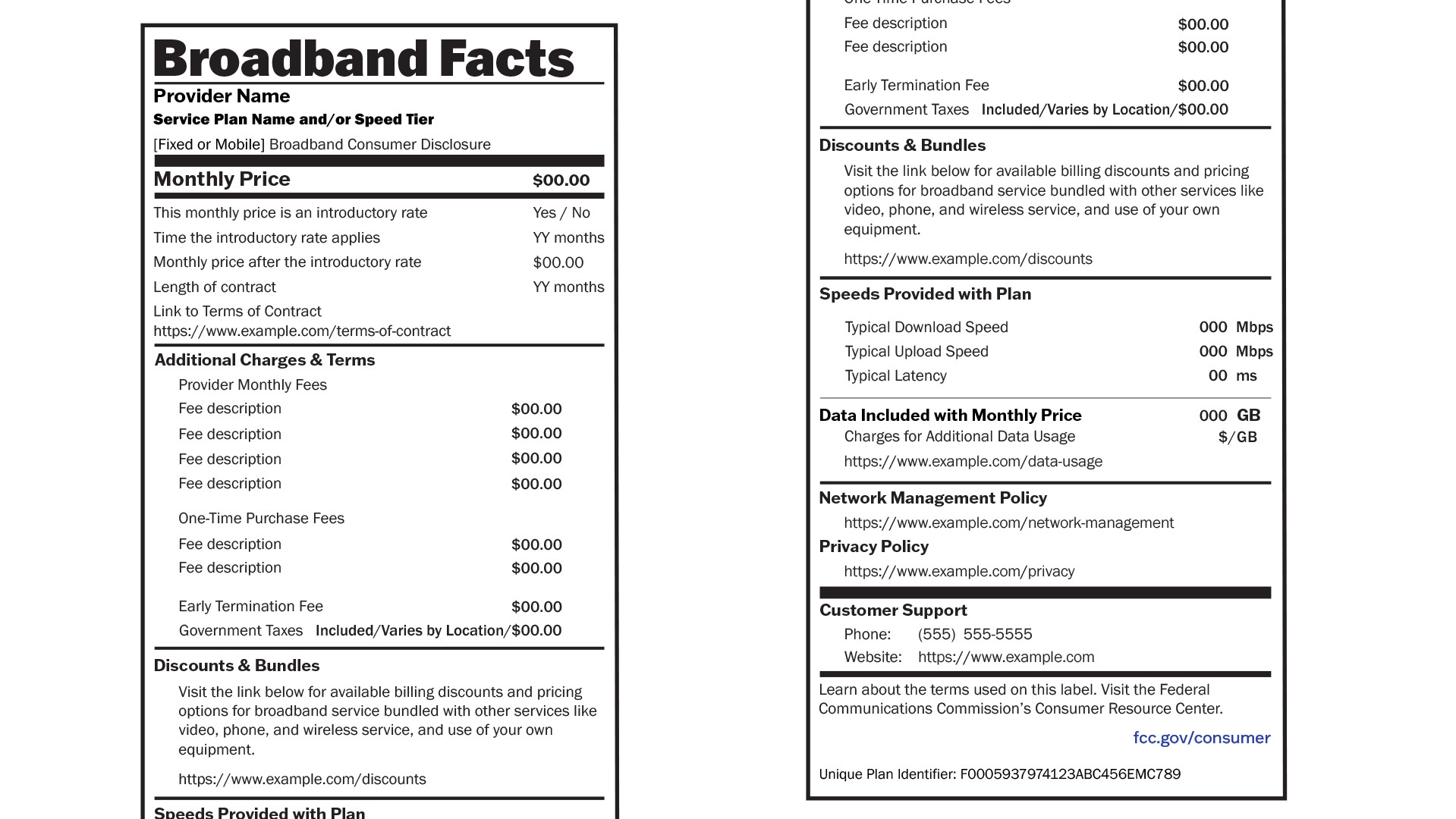Switching broadband is going to get easier thanks to these new 'nutrition' labels
Labels show an ISP's download speed, monthly cost, and more

Sign up for breaking news, reviews, opinion, top tech deals, and more.
You are now subscribed
Your newsletter sign-up was successful
Starting April 10, the US Federal Communication Commission (FCC) will require internet service providers (ISP) to begin displaying information about their service in a clear and concise manner. The format for the details resembles nutrition labels, like you see on food boxes. But instead of calories, sugars, and fats, the FCC’s Broadband Labels will show off monthly subscription costs, download speeds, and more.
The purpose of these new rules is to help customers shop around for the best ISP knowing everything the service will provide without the misleading language. It aims to make things more transparent between you and the company so you won’t be sucker punched by a fee you didn’t know was there.
Each of the sheets consist of six major sections. At the top, you have the name of the provider and the plan you’re paying for laid out.
Below the title is Monthly Price telling you how much the service costs per month, whether or not it’s an introductory rate, plus how long the contract will be. The next section informs you of any additional charges you may incur. These range from early termination fees to government taxes. What's more, a link directing you to all the discounts and bundles an ISP offers can be found in the middle of the label for easy access.

As you reach the bottom, you’ll notice a small table revealing the typical upload and download speeds of an ISP’s service. There's no confusion regarding what you may experience. It’s all as clear as day. A connection’s typical of latency is provided here too.
Your monthly data cap is listed alongside the surcharge that’ll be applied if you go over the limit. Finally, at the bottom are links to a company’s policy page and a phone number for customer support in case you want to double check the info you see.
New rules, more tranparency
The Broadband Label is the result of a near decade long battle by the FCC in an attempt to get ISPs to be more transparent with their customers. Major providers fought for years to get the Commission to drop the new rules.
Sign up for breaking news, reviews, opinion, top tech deals, and more.
In 2023, ISP representatives claimed listing all this information could result in “unnecessary complexity." Comcast was even accused by the FCC of “trying to create loopholes” to avoid showing all these details. Obviously, the organization moved ahead, regardless of the complaints.
Not every ISP has been so hesitant in adopting the Nutrition-style sheets. Google, in fact, was among the first to embrace them. Last year, the tech giant published “GFiber Nutrition Labels” far ahead of every other ISP.
Google laid out the facts of its internet service: from how much your monthly bill will run to expected download speeds. Since then, we’ve seen the likes of Verizon and T-Mobile embrace the mandate by creating their own facts sheet.
At this time, the Commission's decision only pertains to major ISPs. Small providers “with less than 100,000 subscribers have until Oct. 10, 2024 to comply." If a service brand in your area is not following the rules or has “posted inaccurate information about its fees," the FCC asks that you snitch on them by filling out their Consumer Complaints form.
If you're looking to improve the internet connection in your home, check out TechRadar's list of the best WiFi routers for 2024.
You might also like

Cesar Cadenas has been writing about the tech industry for several years now specializing in consumer electronics, entertainment devices, Windows, and the gaming industry. But he’s also passionate about smartphones, GPUs, and cybersecurity.